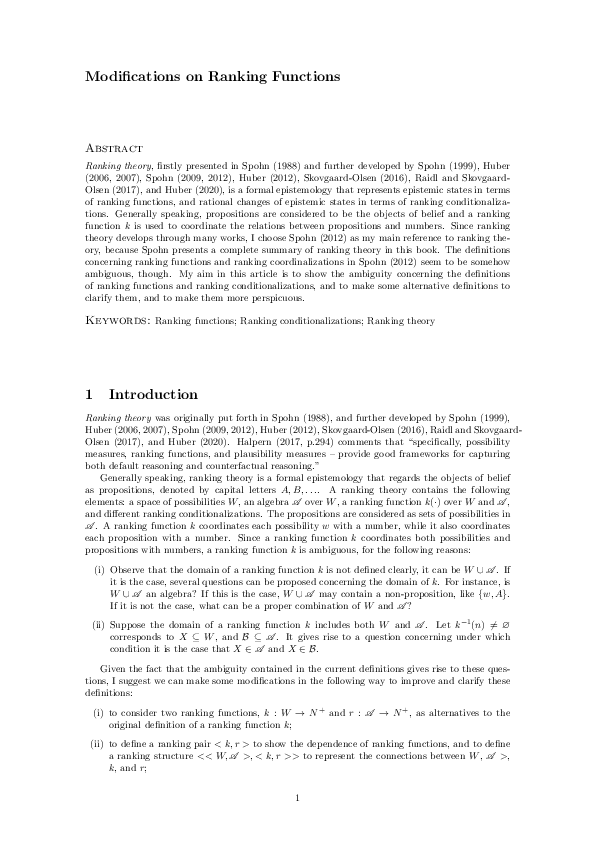Modifications on Ranking Functions
Abstract
Ranking theory, firstly presented in Spohn (1988) and further developed by Spohn (1999), Huber
(2006, 2007), Spohn (2009, 2012), Huber (2012), Skovgaard-Olsen (2016), Raidl and SkovgaardOlsen (2017), and Huber (2020), is a formal epistemology that represents epistemic states in terms
of ranking functions, and rational changes of epistemic states in terms of ranking conditionalizations. Generally speaking, propositions are considered to be the objects of belief and a ranking
function k is used to coordinate the relations between propositions and numbers. Since ranking
theory develops through many works, I choose Spohn (2012) as my main reference to ranking theory, because Spohn presents a complete summary of ranking theory in this book. The definitions
concerning ranking functions and ranking coordinalizations in Spohn (2012) seem to be somehow
ambiguous, though. My aim in this article is to show the ambiguity concerning the definitions
of ranking functions and ranking conditionalizations, and to make some alternative definitions to
clarify them, and to make them more perspicuous.


